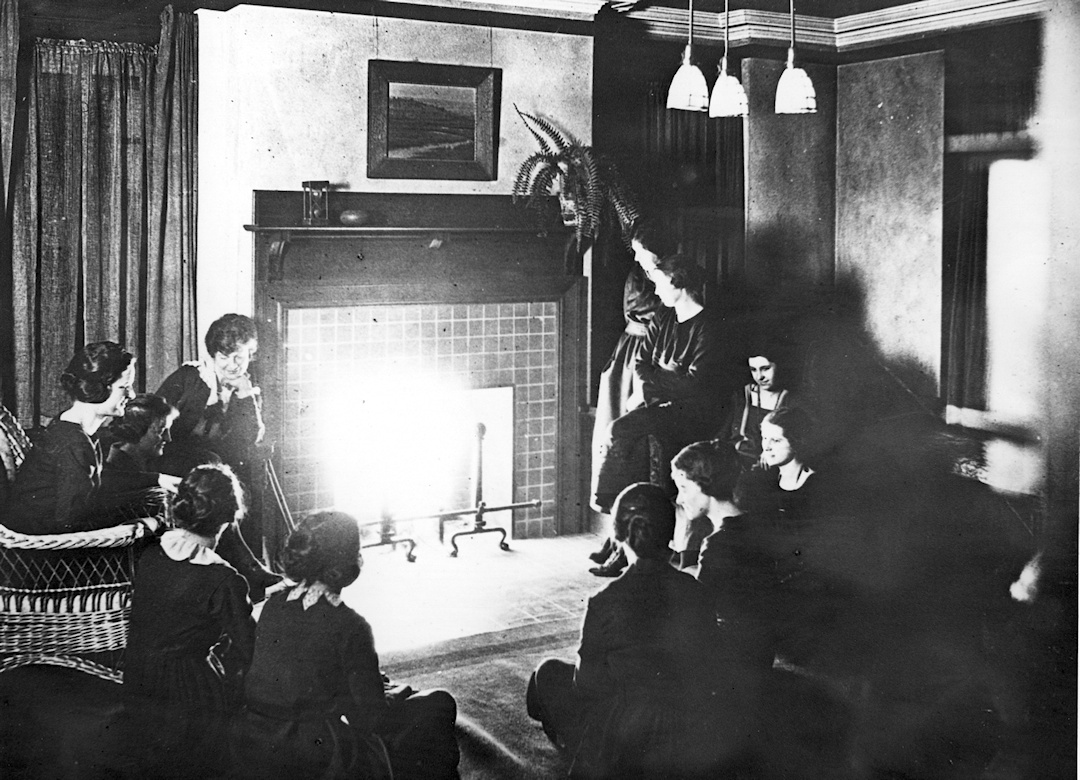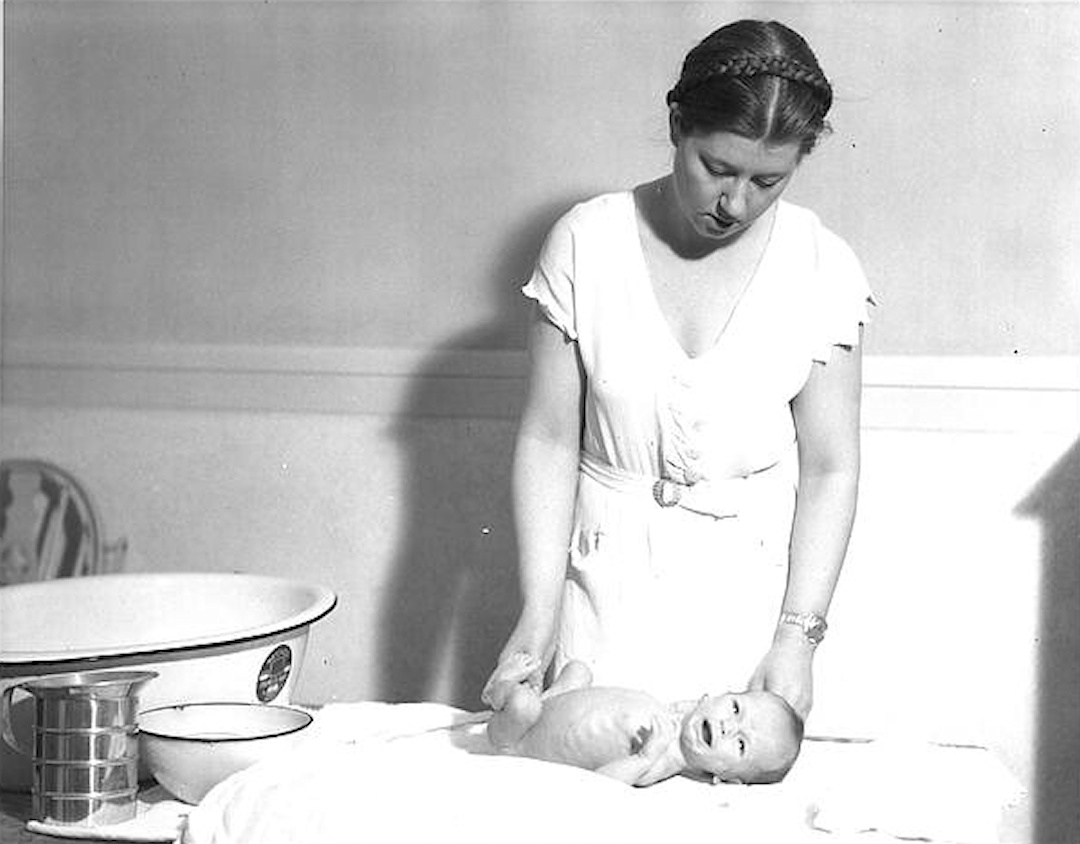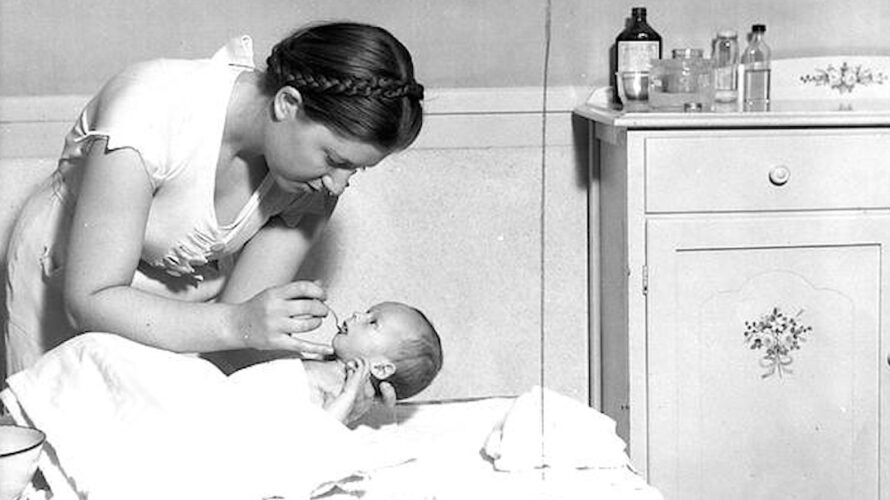Home economics (today more commonly named family and consumer sciences) is a subject dealing with running a household. Typical matters taught at home economics (usually abbreviated as home ec in the U.S.) classes are nutrition, family finance, human development, interior design. Home economics is present in many countries as a mandatory or voluntary course, usually in high school.
Historically, it was also taught in universities. It was more focused on housework, and was considered as a helpful subject to provide intellectual fulfillment for women traditionally predestined for a homemaker role. Education was not available widely, internet was not a thing long time ago. Home economics was therefore an invaluable source of knowledge that is obvious today, but not necessarily in 1920s or 1960s. Students learned about human health, childcare, budgeting, cooking and cleaning.
Were practice babies real?
To make home economics courses more hands on, many colleges throughout United States and Canada created practice houses. These were fully equipped houses or apartments where one could practice domestic skills. One of first schools to “equip” their practice apartment with a practice baby was Cornell in 1919. Dicky Domecon was an infant “borrowed” in cooperation with local orphanage. Eight students living in practice apartment for a semester took turns caring for Dicky Domecon (short for Domestic Economics). Soon Bobby Domecon and Edna Mae Domecon joined. Students raised the practice babies in accordance with up-to-date upbringing science.

After a year in practice house, borrowed babies were offered for adoption. Practice babies were considered best “material” available for adoption. Prospective adoptive parents put their names on waitlists for a chance to adopt a baby who received structured and guided professional care.
Universities with practice baby programs
All babies in Cornell’s program received a surname Domecon. Other colleges also had their signature surnames. Illinois State University named their borrowed babies North of South, after North Building and South Building where home economics was taught. At least 40 universities in the U.S. and Canada are known to have had practice baby programs. University of Manitoba, Texas Technological College, Allentown’s Cedar Crest College, Baylor University, Texas Wesleyan University fostered borrowed orphans or prison babies aged between 1 and 4.
Today the idea of borrowed practice babies sounds a little shocking, a little inhuman, with a hint of dystopia. Some controversy was sparked in 1950s when Time wrote about the phenomenon which was still practiced at the time. The babies at Illinois State University were investigated by Illinois state child welfare division, but were discovered to be healthy and well-nurtured.

Last of practice baby programs was closed in 1969. Only a few of the babies were tracked afterwards. Anonymous adoption was widespread. Records were not necessarily kept. Any adoption was considered better than no adoption. Barbara Ann Hinsley is 84 years old today. She was a practice baby in The Home Management House of Texas Tech. She has fond memories from the practice house. A 1993 article in Allentown’s The Morning Call newspaper features Donald Aldinger who reunited with his four practice mothers. He was too young to remember the experience, and it took him years to track his heritage and find out that he was a “project baby”. But he was very happy to meet his “mothers”.
Modern attachment theory disproves practice baby programs, but it’s a phenomenon that shaped many lives as recently as 1969.


